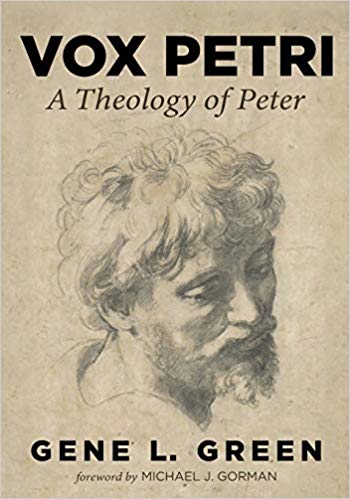BEN: I do very much appreciate your bringing Peter back into the foreground of our theological discussions as he has indeed been sadly neglected especially by those of us who are Protestants. And you are right that Peter was apparently the first one to receive the divine kick in the pants to go and make a disciple of a Gentile and his household— Cornelius. But I really don’t see Peter as inaugurating a Gentile mission by this one off kind of event. It just convinced him there should be one, and he says so in Acts 15. I take very seriously what Gal.2 says about
the division of labor— Peter is being commissioned to go to the ‘circumcision’ and Paul to the Gentiles. This of course wouldn’t mean that they would never evangelize others, but their focus would be based on this ethnic distinction. Peter was not the apostle to the Gentiles, that was Paul, and it came as result of the Damascus Road experience, not from the encouragement of Peter. Therefore, the speech in Acts 15 is Peter supporting the already extant first missionary work with Gentiles undertaken according to Acts 13-14 by Paul, Barnabas, and for part of the time Mark. Peter agrees with the theology of salvation by grace through faith in Jesus for everyone, for God is impartial, but both in his and in Paul’s case this insight comes from divine revelation, not from Peter or Paul influencing the other. How would you respond to this?
GENE: First, I’m not sure that Peter’s theology has been a central focus among Roman Catholics either! Concerns about Peter and the papacy have not translated into deep work on the apostle’s theology. Much the pity. There are notable exceptions, such as Pheme Perkins’ work in Peter: Apostle for the Whole Church. I’m deeply in her debt.
Acts 10 and 11 point to Peter as opening the gospel door for the gentiles and James identifies Peter as the shaker and mover here (Acts 13.13-14). James does not even mention Paul and Barnabas when he addresses the council at Jerusalem. You’re right about the division of labor, however, with Paul focused on the gentiles and Peter on the Jews, but there was crossover and hardly anything like the old missionary comity agreements. Paul went to the synagogues first as he traveled and recognized that the gospel is for the Jew first (Rom. 1.1.16-17). But he brought in the gentiles as well. Peter ends up speaking to gentile Christians throughout Anatolia in his first letter (I can see you raising your eyebrow, Ben!) and eventually ends up with the ethnically mixed Christian community in Rome, aka Babylon.
As for Paul and Peter’s respective revelations, I’m pleased that the apostles agreed and shook hands over theology (Gal. 2.2, 9). The old Tübingen school that styled them as rivals and representatives of the Jewish and Hellenistic wings of the church had no solid foundation. Paul, however, likely got the Jesus story from Peter – how else did he know about the events in Jesus’ life and the contours of the Lord’s teaching (Gal. 1.18)? While Paul and Peter came to the same conclusion regarding the gospel of God’s grace, Peter appears to have given Paul a substantive deposit of knowledge. I sometimes joke with my students that Paul is derivative. That’s somewhat unfair, and I say it with a wry smile. But whatever we understand regarding the nature of Paul’s revelations, we cannot deny the historical ‘download’ he received regarding Jesus’ deeds and words. Peter appears to be the principle player here. He bore and told the Jesus story.













